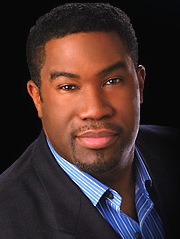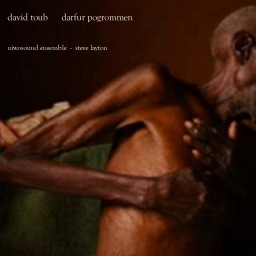I am not, generally speaking, a big fan of movie music although the ability to produce useful art on demand appeals to my lifetime hack sensibilities. I don’t think Bernard Hermann and Miklos Rozsa are overlooked concert hall geniuses who might have been among the greats had they not traded their souls for big houses in Beverly Hills. They are what they are.
Writing for films is a craft, not an art, but it is a demanding craft that not every composer–even a great one–can do. In Andre Previn’s memoirs of his Hollywood years (which is called No Minor Chords because Irving Thalberg once degreed that no MGM picture should ever contain music with a minor chord), Previn writes of having taken one of the big moguls, Louis B. Mayer, I believe, to the Hollywood Bowl to hear the Sibelius Violin Concerto. Afterwards, he asked him how he liked it. “Well,” Mayer said. “It was good but he couldn’t write for pictures.”
I suspect Mr. Mayer was right. Many “serious’ composers (and writers, too, think of Faulkner) are not good at writing for pictures.
 The latest example of underachievement in the category of film music is Osvaldo Golijov, whom Francis Ford Coppola specifically commissioned to write the music for Youth Without Youth, Coppola’s recent comeback film which was seen by absolutely nobody. On the surface, Golijov’s enormous multicultural sound palette would seem perfect for film. Alas, the result is more insipid than limpid, if you know what I mean.
The latest example of underachievement in the category of film music is Osvaldo Golijov, whom Francis Ford Coppola specifically commissioned to write the music for Youth Without Youth, Coppola’s recent comeback film which was seen by absolutely nobody. On the surface, Golijov’s enormous multicultural sound palette would seem perfect for film. Alas, the result is more insipid than limpid, if you know what I mean.
 On the other hand, Jonny Greenwood of Radiohead fame nails his film debut with the score for There Will Be Blood. The music has to be pretty dramatic to match Daniel Day-Lewis’ over-the-top, spit-slinging, snot-dripping performance as a rabid early oil man but Greenwood pulls it off. So he’s channelling Penderecki, Gorecki, and Messiaen, originality is less important than conveying mood in film music. Like Ry Cooder, another unexpected star of film music, Greenwood shows himself to be a master of atmosphere and shifting physical and mental landscapes. If he wants to give up his day job, he’s probably got a future in Hollywood.
On the other hand, Jonny Greenwood of Radiohead fame nails his film debut with the score for There Will Be Blood. The music has to be pretty dramatic to match Daniel Day-Lewis’ over-the-top, spit-slinging, snot-dripping performance as a rabid early oil man but Greenwood pulls it off. So he’s channelling Penderecki, Gorecki, and Messiaen, originality is less important than conveying mood in film music. Like Ry Cooder, another unexpected star of film music, Greenwood shows himself to be a master of atmosphere and shifting physical and mental landscapes. If he wants to give up his day job, he’s probably got a future in Hollywood.
 This week the Next Wave Festival 2008 is raging at BAM, and there are several chances next week to hear Lightning at our feet, the latest from Ridge Theater and Michael Gordon at the Harvey Theater. (Dec 9, 11-13)
This week the Next Wave Festival 2008 is raging at BAM, and there are several chances next week to hear Lightning at our feet, the latest from Ridge Theater and Michael Gordon at the Harvey Theater. (Dec 9, 11-13) Unlike the album driven days of yore, today it’s all about the mix. From purchasing single tracks digitally at online stores such as Itunes and Amazon to the internet radio sensation Pandora, which tailors ‘stations’ to a listener’s preferences, music is presented as eminently accessible; instant gratification, inevitable. While all aforementioned methods of mix are exciting in their potential for discovery, surfing the impossibly
Unlike the album driven days of yore, today it’s all about the mix. From purchasing single tracks digitally at online stores such as Itunes and Amazon to the internet radio sensation Pandora, which tailors ‘stations’ to a listener’s preferences, music is presented as eminently accessible; instant gratification, inevitable. While all aforementioned methods of mix are exciting in their potential for discovery, surfing the impossibly  Violinist Anne-Sophie Mutter is continually creating something new – from concerti by Krzysztof Penderecki and Andre Previn to works by Sebastian Currier and Henri Dutilleux.
Violinist Anne-Sophie Mutter is continually creating something new – from concerti by Krzysztof Penderecki and Andre Previn to works by Sebastian Currier and Henri Dutilleux. Baritone Eric Owens is busy this fall – his Met debut as General Leslie Groves in John Adams’ Dr. Atomic is just a start to his performances this season in New York, Atlanta, London and Los Angeles.
Baritone Eric Owens is busy this fall – his Met debut as General Leslie Groves in John Adams’ Dr. Atomic is just a start to his performances this season in New York, Atlanta, London and Los Angeles. How does it sound – a double concerto written by a musician weaned on Beethoven, salsa, Stravinsky and Bulgarian folk music? In short – like nothing else!
How does it sound – a double concerto written by a musician weaned on Beethoven, salsa, Stravinsky and Bulgarian folk music? In short – like nothing else!
 The latest example of underachievement in the category of film music is Osvaldo Golijov, whom Francis Ford Coppola specifically commissioned to write the music for Youth Without Youth, Coppola’s recent comeback film which was seen by absolutely nobody. On the surface, Golijov’s enormous multicultural sound palette would seem perfect for film. Alas, the result is more insipid than limpid, if you know what I mean.
The latest example of underachievement in the category of film music is Osvaldo Golijov, whom Francis Ford Coppola specifically commissioned to write the music for Youth Without Youth, Coppola’s recent comeback film which was seen by absolutely nobody. On the surface, Golijov’s enormous multicultural sound palette would seem perfect for film. Alas, the result is more insipid than limpid, if you know what I mean.